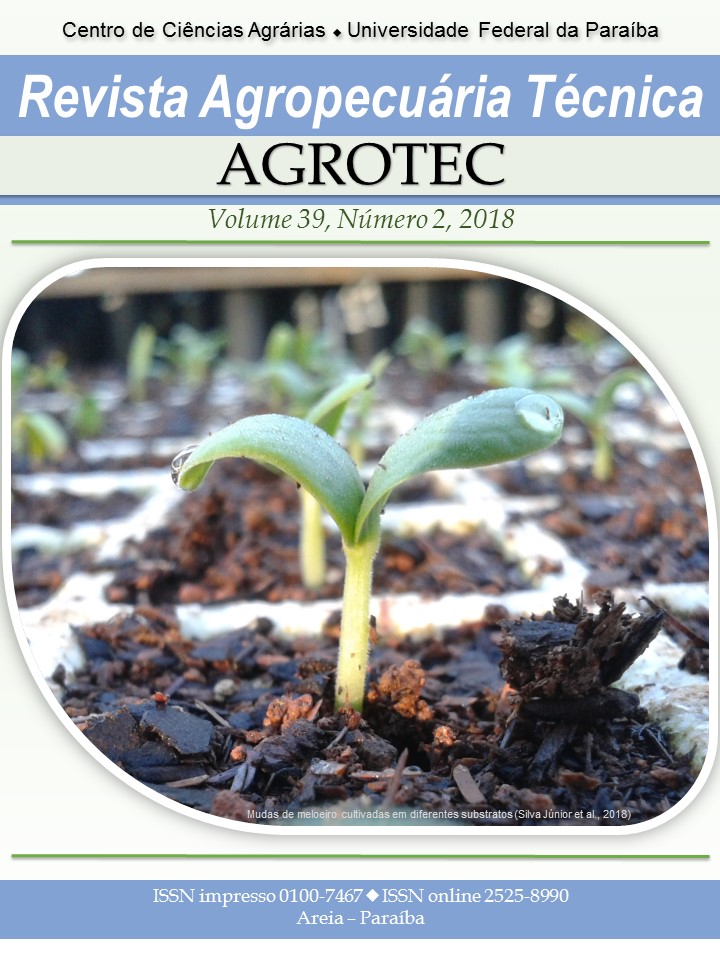Growth and biomass aculmulation in corn irrigated with saline water
DOI:
https://doi.org/10.25066/agrotec.v39i2.38466Keywords:
Zea mays L., Development, Saline stressAbstract
The salinity of water is one of the major problems that limits agricultural growth and production in the arid and semi-arid climates of the Northeast. The objective of this work was to evaluate the effect of saline stress on irrigation water on initial growth and corn biomass accumulation. The experiment was conducted in the field from August to September 2017, at the experimental farm of Piroás of the University of International Integration of Afro-Brazilian Lusophony. The experiment was conducted in a randomized complete block design and four replications. The treatments were composed of five electrical conductivity of the irrigation water (1.0, 2.0, 3.0, 4.0 and 5.0 dSm-1). The plant height, stem diameter, leaf number, leaf area, root length, shoot dry weight, root and total mass were analyzed at 45 days after sowing. All variables were linearly reduced with increasing salinity in irrigation water. The increase in the saline content of irrigation water was detrimental to the growth in height, stem diameter, number of leaves, leaf area and root length, also negatively affected the dry matter accumulation of shoot, root and total corn.


